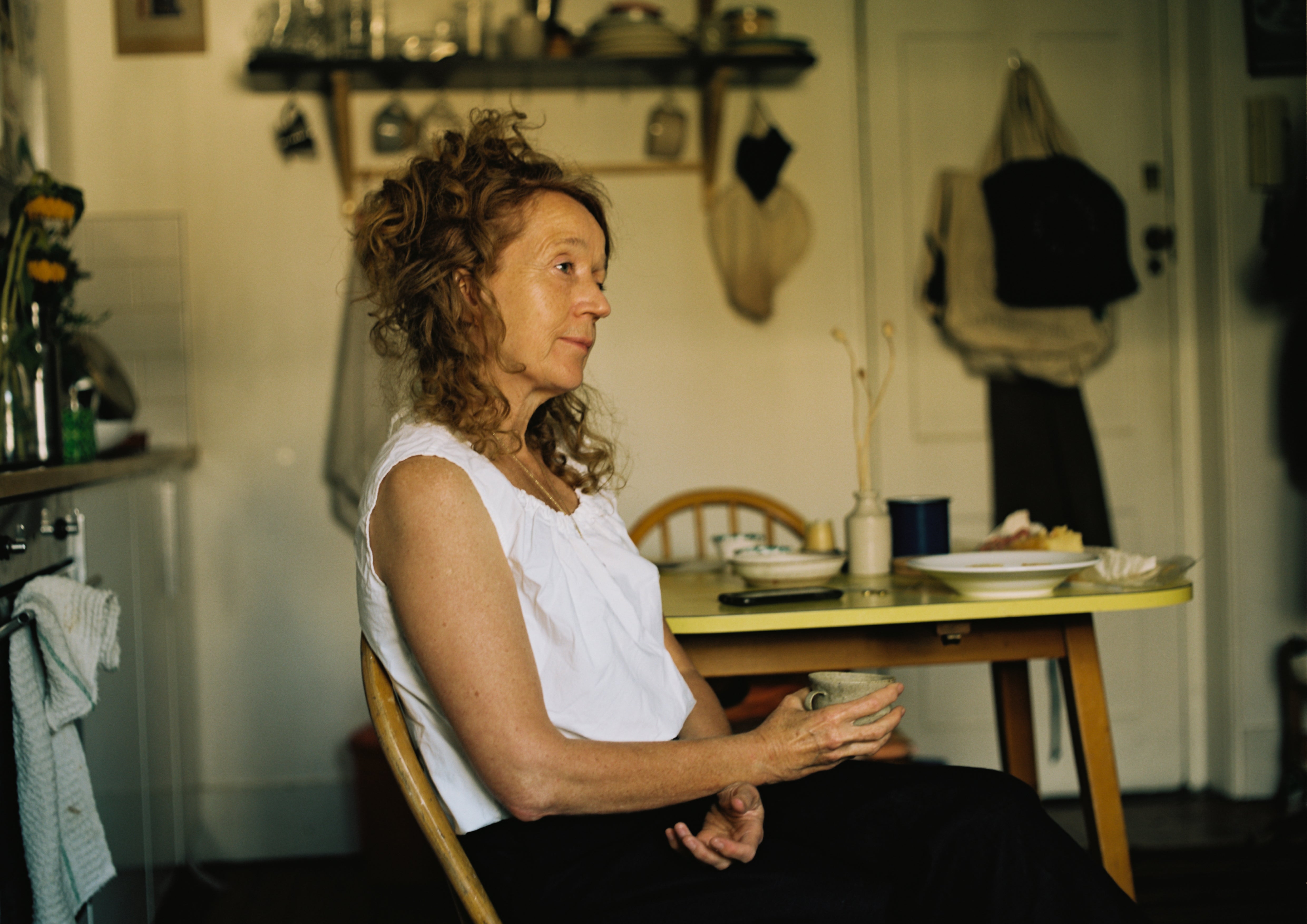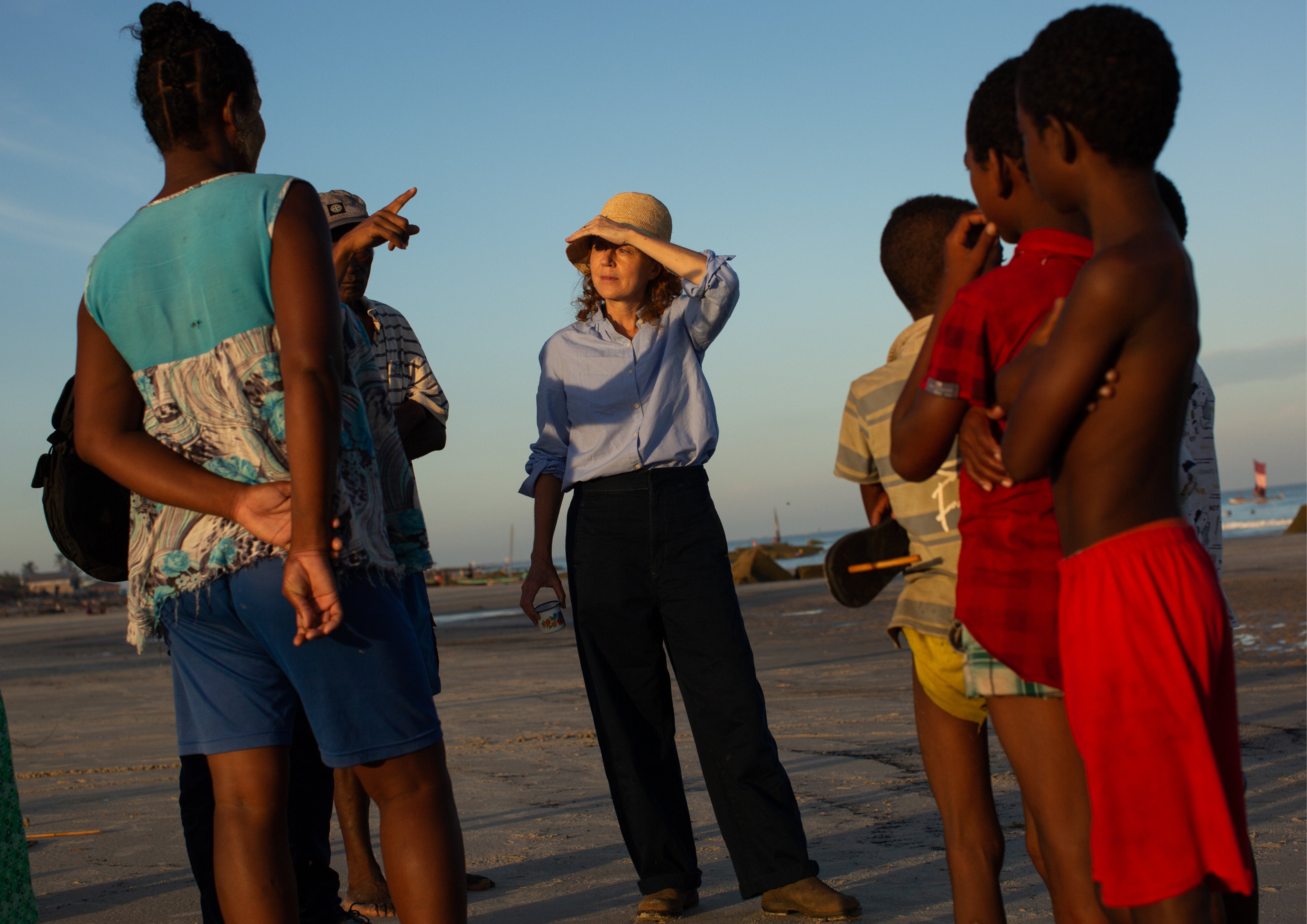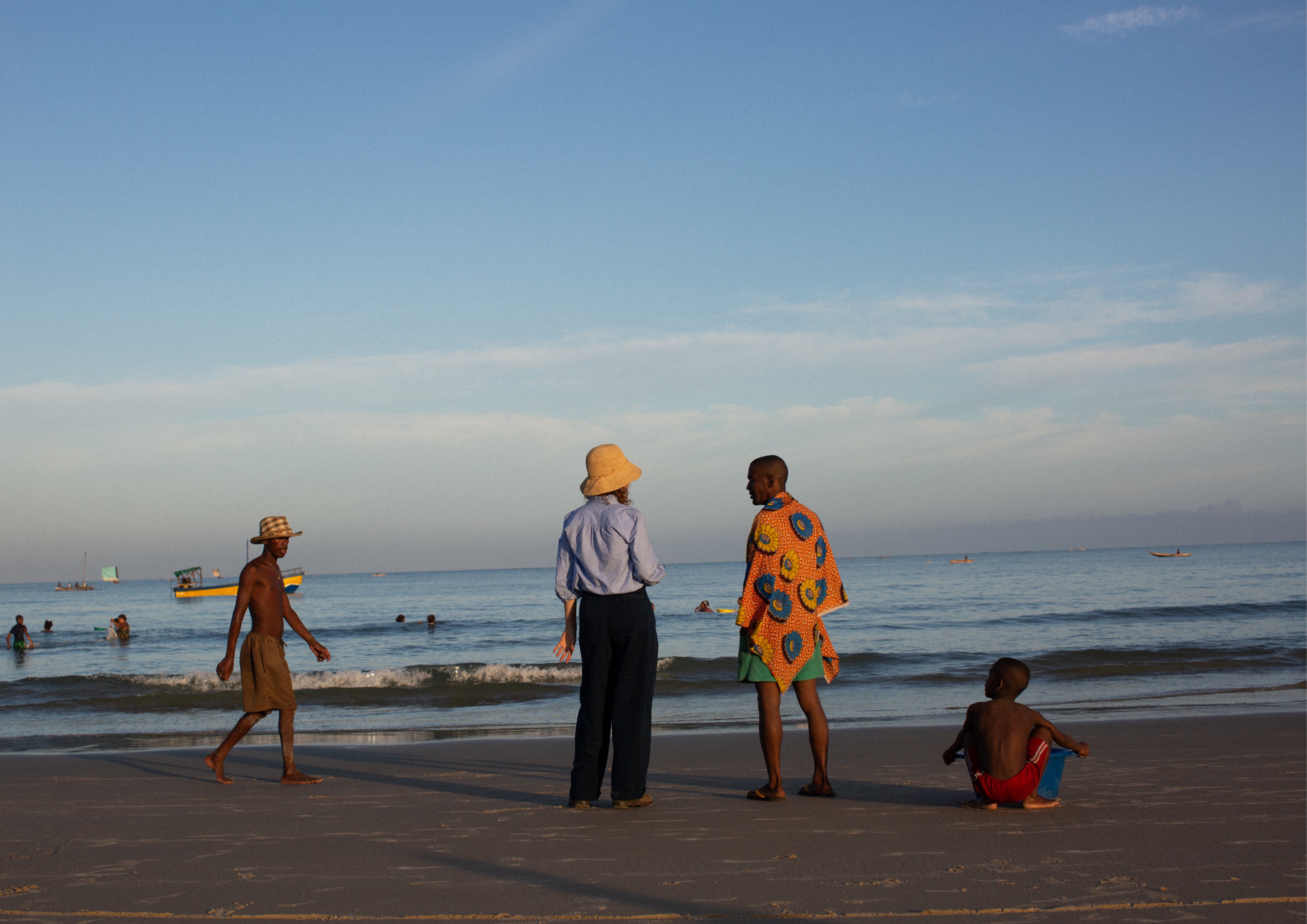
For TOAST Portraits, journalist Mina Holland and photographer Elena Heatherwick meet the people whose treasured TOAST pieces some archive, some new have stood the test of time. This month, Mina spoke to British journalist Sally Williams and Elena photographed her while on assignment in Madagascar. Below is her story.
Suddenly I grasped the meaning of toilets, says journalist Sally Williams, hugging a cup of herbal tea with dainty hands. We are talking about her trip to Madagascar with WaterAid last year; she was there to cover a story about a lack of access to toilets, and the problem it poses to communities. It's a significant issue across the developing world, she says, but also very difficult to represent. Before I got there, I didn't know how I was going to tell the story.
The answer came on day one. In the first village she visited, deep in the remote highlands, Sally met a village elder whose life had been unravelled by the problem. Years before, he and his wife had lost two of their five daughters to diarrhoea as babies, and in the spin of grief, she had left him (for the man who was building the road into the village) with their other three girls. He was broken. Despite an itinerary that would take her around Madagascar over the course of a week, Sally knew that in this man and this village, she had found her story. The story was the people, from the village elder to the aspirational woman who had the best loo in the village with ceramic tiles on the floor, and the sassy girls who thought the idea of not having a toilet was laughable.

It's all about people, she says, to me, that's what life is about. I'm not a news hound type. Sally's work as a features writer has taken her across the world, and into the finest details of people's lives from midwives in Haiti to fishermen in Mozambique in pursuit of stories that matter. I love the opportunity to make connections with the people I write about, to build a relationship.
Her appetite for connection is palpable when, during our conversation, I reveal things about my own life - my current pregnancy, my daughter's illness, my writing. Sally leeches onto these titbits, forgetting for a moment that, for once, she's the one being interviewed. It occurs to me that I can't remember interviewing another journalist before, and am suddenly fascinated by our dynamic two women used to asking the questions, but reticent about giving the answers. Sally edits herself as she goes along backspacing, footnoting, rewording as I probably would in her shoes (they're chunky brown buckled sandals worn over mustard socks, incidentally).
I love to tell stories from multiple points of view, Sally goes on, building the fullest picture she can of a tiny snapshot of life. She supposes that her preference for long form journalism both as a writer and a reader comes down to an admiration for the same qualities she looks for in how her clothes are made: the crafting something, taking time over it, and a result that has lasting value. It's the little things the fabrics, the fittings, the buttons that make all the difference to her. I love how the fabric of TOAST clothes evolves the longer you have them, she says, the identity of a cotton shirt changes over time, as has my mink-coloured jumper, which has become lovably matted, slightly felty.


Sally has worn TOAST for some time. Not long after the brand launched, she interviewed its founders at home on the Welsh borders for The Telegraph. I was pregnant with my fourth baby and they were selling beautiful baggy trousers with a tie - perfect for the stage I was at I'd just lost my waist. Seduced by the brand's practical style and attention to detail, she started to buy herself something from TOAST every year or so. When my children were little, I treated myself to their sheets. I had four kids under eight sleep was rare and bed was vital. I'll always remember the flannel duvet cover with fabric ties, which felt better every time I washed it, also two Indian-style nighties. She used them all until they were threadbare, mending them as she does with all her clothes until their un-bitter end. I like the idea of repairing rather than chucking out, she says, nodding again to how things and people acquire new character with imperfections; wabi sabi in action.
Just two years ago, Sally wore a TOAST top on her non-wedding wedding day the crisp, white new to her outfit (her old were some black trousers, while borrowed and blue were one of her daughters' bracelets and a handbag, respectively). It was very pared back for a wedding; my partner and I had always been very much of the Joni Mitchell belief, We don't need no piece of paper, keeping us tied and true They'd been together for 30 years, but decided to marry to give their four children their only wedding guests financial security. Sally made a big lemon polenta cake and sent slices to friends and family afterwards. It was perfect.

Sally left a permanent job at The Independent for freelance life when her second child had turned two, ostensibly for greater flexibility, yet found herself writing stories that I can only guess demanded more of her. How did she do it? I had to have total focus on the job when I was away, and then was back making packed lunches and driving the children to clubs when I returned, she says, describing the rush to get the kids to school before heading to the airport, then the indulgence of buying an issue each of The New Yorker and Private Eye, sitting down on the plane, and, finally, breathing. But more than anything else, Sally's brand of storytelling is less a job than a way of life. I thrive on immersing myself in it; I never wanted to write about myself and my family, I wanted to know about the outside world. To this day, what I love about journalism is the access it gives you; you meet people you never would normally, and I still find that thrilling.
Some of these people include Afghan women working on the frontline, British bolters (women who have left their children), Peshmerga fighters in Iraq, surrogate mothers in Ukraine, communities living without toilets in Madagascar and, most recently, a former medical officer from Birmingham, who saved the city from a smallpox outbreak in 1978. A real unsung hero, she says, her face alight, framed by flames of red hair, he was talking about track and trace before it was even heard of. This is someone who confesses to craving adventure (then apologises for sounding glib) but, true to someone who professionally reflects on things, Sally has an idea of why.
Aged 25, while studying journalism at the London College of Printing (now the London College of Communication), she had an accident. She'd been to dinner with an interviewee when, walking home to Maze Hill, near Greenwich, she was run over on the pavement by a drunk driver. Sally includes little details to her story that it was St Patrick's Day; that she was listening to music on that very '90s tech accessory, the Walkman; that the driver then crashed into a betting shop the last things she clearly remembers before life changed irreversibly. Both her elbows, her collarbone, leg, cheekbone and nose were broken; her eye socket was damaged, and her olfactory nerve sheered off; she lost her taste and smell forever; and ended up in intensive care After near-death, I decided that I really wanted life. I wanted fullness. To live life as fully as a woman can. For me, that meant travelling, making stories, having children.

This sense that it could all end tomorrow, that, while you're here, life should be seized, is not only inspiring but relatable for me, consistent with ideas around post-traumatic growth', a term coined by psychologists Rich Tedeschi and Lawrence Calhoun in 1995. The pair noticed that a near-death experience or something equally traumatic didn't so much prompt recovery in people as a fundamental change, shifting their world views and relationships forever. Soon after the accident, Sally met her partner, got her diploma in journalism and sought out stories that would make a difference for instance, how learning disabilities are handled in the UK's criminal justice system, or a picture of Pakistan one year on from its devastating earthquake, or looking at body dysmorphic disorder.
You must have a real sense of purpose, I say, although I imagine the emotional toll can be heavy. It's a pleasure, she agrees, but it is still a job - I go so deep into any subject I write about. I fill up, like a sponge, and then give it all away.
Sally Williams is a journalist who writes on a variety of subjects, reporting for The Times, The Guardian and The Telegraph magazines from The Middle East, Afghanistan, and North Korea. Travelling on assignment to Madagascar with WaterAid, Elena joined Sally to photograph a community in Ambatoantrano highlighting their visionary efforts to improve sanitation. If you'd like to learn more about this project, Elena has documented her story here.
Words by Mina Holland.
Images by Elena Heatherwick.
Add a comment